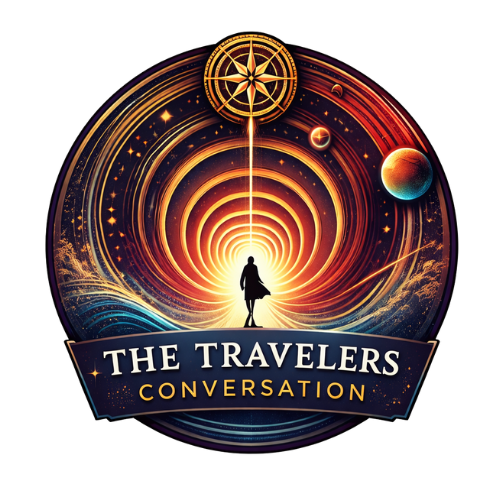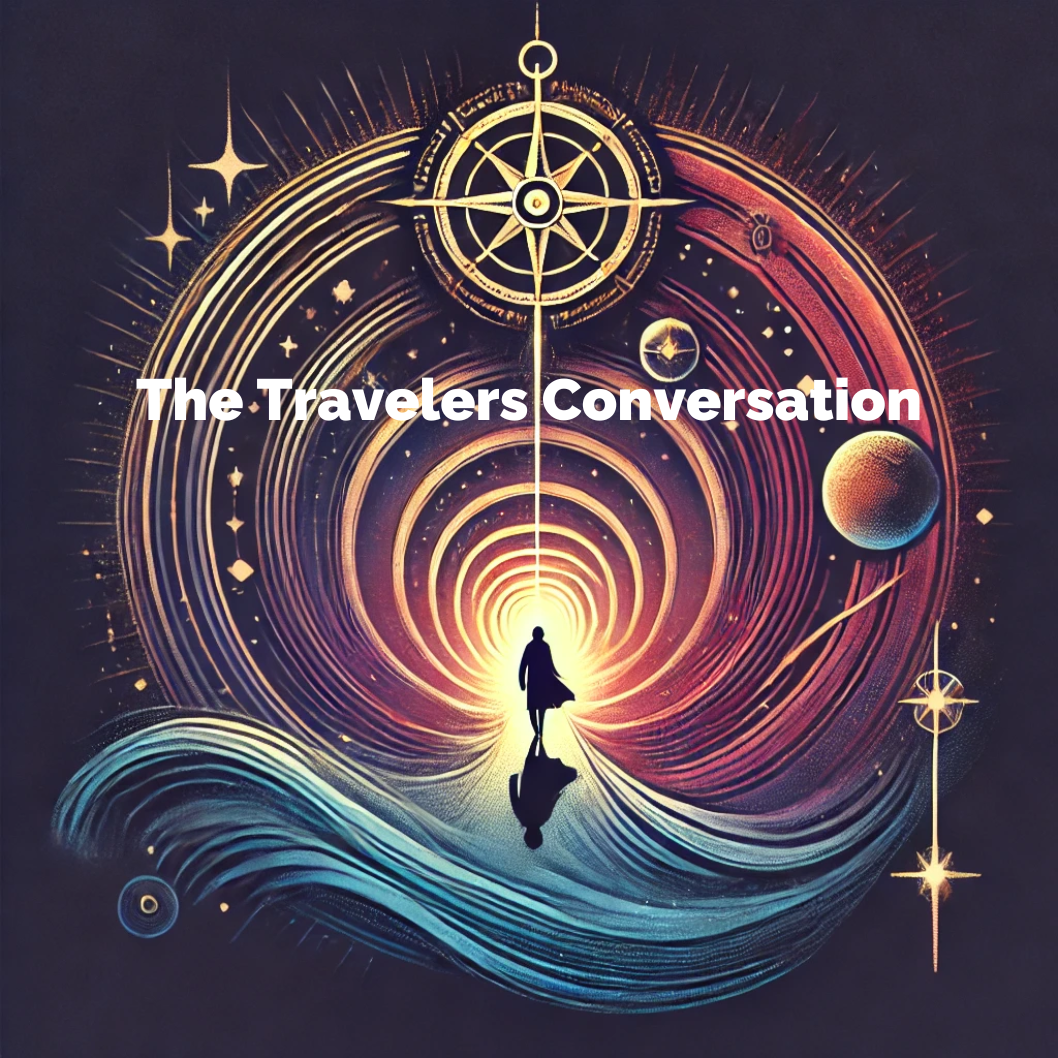
Breaking Free from Drama
Apr 04, 2025Breaking Free from Drama: Understanding the Four Pillars and How Your Human Design Can Guide You
Drama—it’s something that most of us encounter at some point in our lives. But we’re not talking about the exciting kind you see on Broadway or in movies. This is the kind of drama that comes with misunderstandings, assumptions, and negative emotional fallout. It’s the kind of drama that no one benefits from, yet it can feel so sticky and hard to shake off.
Many of us find ourselves unintentionally creating or getting swept up in drama, often without realizing how or why it happens. We might even recognize the patterns but feel powerless to break free from them. But what if I told you that there is a way to break the cycle of drama? What if I told you that understanding certain behaviors, or what I like to call the Four Pillars of Drama, can help you create more peace and clarity in your life?
In this post, we’ll explore these Four Pillars and dive into how integrating Human Design—a tool that helps you understand your unique energy blueprint—can empower you to step out of drama and create a more balanced, fulfilling life.
The Four Pillars of Drama
Drama doesn’t just happen by chance. It’s usually the result of certain behaviors or mindsets that we engage in, often unconsciously. Over time, these behaviors form ingrained patterns that can trigger drama in our relationships, work environments, or even within ourselves. So, let’s break down the Four Pillars of Drama and explore how each one plays a role in perpetuating this cycle.
1. Jumping to Conclusions
Jumping to conclusions happens when we assume we know what others think or feel, or what will happen in a situation, even when we don’t have all the facts. These assumptions often trigger defensive behavior, leading to miscommunication and unnecessary drama.
Example: You overhear a colleague talking about a project you’re involved in, and immediately your mind races. “They’re upset with me,” you think, “they don’t like my work.” Before you even ask for clarification, you’ve created a whole story in your head.
How Human Design Plays a Role:
People with different Human Design Types tend to engage with situations like this differently:
- Manifestors might react impulsively, jumping to conclusions without waiting for the right moment or invitation.
- Projectors might feel like they’re not being seen or recognized, leading them to jump to conclusions about others’ perceptions of them.
- Generators and Manifesting Generators may assume the worst-case scenario when their energy is misdirected or they’re not working on something they’re passionate about.
When we jump to conclusions, we close ourselves off to the possibilities and prevent true clarity from emerging.
2. MSU (Making Stuff Up)
MSU is when we create stories in our minds, often spiraling into worst-case scenarios that are completely disconnected from reality. These stories are driven by our own insecurities, fears, and limiting beliefs.
Example: You’re running late to an important meeting, and as the traffic builds, you start imagining all the ways things will go wrong. “I’m going to lose my job,” you think, “no one will take me seriously again.” Before you know it, a minor setback has transformed into a catastrophe in your mind.
How Human Design Plays a Role:
- Projectors might overthink and create stories about being overlooked or unappreciated, even when there’s no evidence to support that.
- Manifesting Generators and Generators may start making up stories about failure, particularly if they feel they’re not using their energy in the right way.
- Reflectors might be deeply affected by the energy around them, causing them to spiral into an emotional narrative based on other people’s feelings.
MSU leads us to act on unfounded fears and ultimately contributes to unnecessary drama. The key is to pause and assess the reality of the situation instead of letting our minds run wild with assumptions.
3. Looking to Be Offended
When we’re always looking for something to be offended by, we’ll certainly find it. This pillar often stems from a victim mindset, where we feel that others are out to harm us or treat us unfairly.
Example: A friend forgets to wish you a happy birthday, and instead of thinking, “They probably just got busy,” you start believing they don’t care about you. You take offense, even though there’s no real malice involved.
How Human Design Plays a Role:
- Manifestors might take offense if they feel their autonomy or freedom is being restricted by others.
- Projectors may take offense when they feel unseen or unacknowledged for their contributions.
- Generators and Manifesting Generators may feel offended when their hard work or energy is not appreciated, leading to frustration.
- Reflectors can pick up on the negative emotions in their environment, making them more likely to feel offended or hurt by others’ actions.
Living in a state of looking to be offended creates tension and blocks us from understanding others' true intentions. It’s important to consciously choose to let go of the need to take offense.
4. Not Declaring Noble Intent
Not declaring noble intent means assuming the worst about others’ intentions, which fuels negativity and creates unnecessary conflict. It’s about not giving others the benefit of the doubt, leading to misinterpretations and misunderstandings.
Example: A colleague sends you a brief email that seems curt. Instead of assuming they’re just busy or having a bad day, you immediately think, “They’re being rude.” This lack of assuming positive intent can escalate the situation unnecessarily.
How Human Design Plays a Role:
- Manifestors may struggle with this pillar if they perceive others as trying to control them or restrict their actions.
- Projectors might not declare noble intent when they feel unappreciated or overlooked.
- Generators and Manifesting Generators may assume others have negative intentions when they’re feeling unacknowledged or frustrated.
- Reflectors may misinterpret the energy around them, leading to judgments about others’ actions and intentions.
Declaring noble intent helps us create space for positive interactions and mutual understanding. It’s a practice that fosters connection and reduces drama.
Breaking the Drama Cycle with Human Design
So, how can Human Design help us break free from the Four Pillars of Drama? The beauty of Human Design lies in its ability to help us understand our unique energy and how it influences our behavior. When we understand our Type and strategy, we can begin to recognize the patterns that lead us into drama and consciously choose to break free from them.
- Manifestors can benefit from learning to wait for the right timing before reacting, which helps prevent jumping to conclusions or creating drama unnecessarily.
- Projectors can learn to wait for invitations and recognition, which reduces the tendency to feel unseen and, in turn, prevents assumptions and offense.
- Generators and Manifesting Generators can benefit from responding to life rather than initiating, which can prevent frustration and the tendency to make up stories.
- Reflectors can learn to wait a lunar cycle before making major decisions, helping them to not get caught up in the emotions and drama of others.
By understanding your unique Human Design, you can begin to take proactive steps toward reducing drama in your life and stepping into a space of peace and clarity.
Final Thoughts
Drama doesn’t have to be a permanent part of your life. By becoming aware of the Four Pillars of Drama and recognizing how your Human Design influences your behaviors and reactions, you can start making conscious choices to step away from the drama cycle.
Take a moment today to reflect on how drama shows up in your life. Are you jumping to conclusions? Are you looking to be offended? Are you making up stories or failing to declare noble intent? With awareness, you can start to break these patterns and create more space for peace, understanding, and connection.
Remember: the more you align with your authentic design, the more easily you can navigate challenges without getting caught in the drama.
Discover Your Unique Blueprint: Complimentary Human Design Session
Are you ready to unlock the secrets of your true self? Join me for a complimentary, personalized Human Design session where you'll gain clarity on your unique design, decision-making strategies, and how to align with your true purpose.
Learn how to tap into your inner authority and live a more authentic, fulfilling life.
Stay with the Conversation
New journal entries are released as they’re ready—
not on a schedule, but in response to what’s moving.
If you’d like to receive new reflections as they’re published,
you’re welcome to subscribe.
No noise. No urgency.
Just a note when something new arrives.

